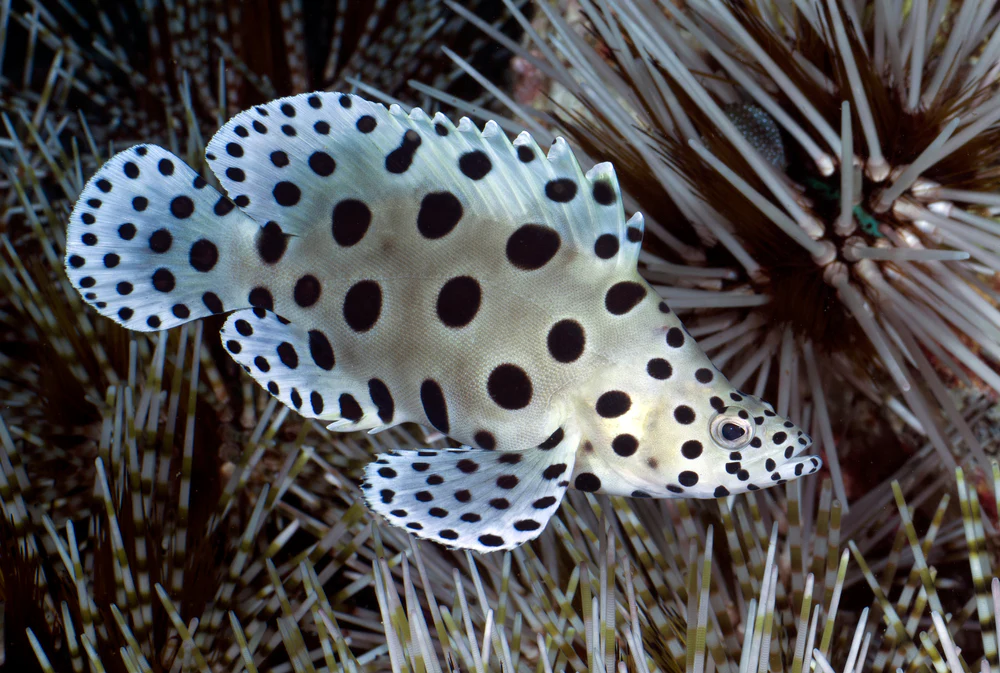
Glossary:
The Panther grouper, or Cromileptes altivelis, is a large and appealing species that can provide plenty of entertainment in your saltwater tank, with a unique look featuring black dots over a white body. If you can handle a more predatory fish and have the space to keep it, the Panther grouper may make a good addition to your aquarium with the proper care.
This guide to the Panther grouper will help you decide whether this fish is ideal for your tank.
The Panther grouper is technically reef-safe in that it won’t nip at your corals, but this species will go after any shrimp and other inverts in your reef tank as predators with a diverse appetite. So, it really comes down to whether you want to keep a reef tank with crustaceans and other invertebrates as features or prey.
The Panther grouper is large and loves to eat many meaty foods. You can feed this fish just about any type of meat imaginable to keep it satisfied, including shrimp, squid, calms, krill, and other smaller fish. You may also be able to supplement meaty foods with dried fish foods specifically for feeding carnivorous species.
As the fish grows, consider sticking with more live foods, which allows the fish to exercise its hunting prowess and can provide some entertainment.
The Panther grouper needs plenty of space to roam in the tank, making it necessary to have a tank that’s at least 150 gallons.
Panther groupers reach an impressive maximum size of 27 inches when fully grown, and it doesn’t take much time for them to reach this size. In fact, they tend to grow as many as three inches every month, so you can expect to see your grouper fully grown in about a year after introducing them to the tank as juveniles or upon hatching.
Like other groupers, the Panther grouper enjoys eating crustaceans, octopuses, and other fish. They’re voracious predators that are likely to either ambush prey or attack it head-on.
The cost of a Panther grouper will depend on various factors that impact the fish’s value. For example, the size and availability are two main items that can lead to fluctuations in cost. The Panther grouper’s price will vary from store to store, but the average cost is around $30 to $150 or even more. The best way to find the right price is to shop around and compare and contrast the different stores.
The following are some interesting facts you might want to know about the Panther grouper:
Like many other fish, the Panther grouper can get along well with other species, but it can be pretty hostile toward its own. They may even go after fish that resemble other Panther groupers.
If you want to keep multiple Panther groupers in your tank, you’re better off introducing them together as juveniles, enabling them to grow together and become more familiar with each other over time.
Otherwise, you can keep the following fish as compatible tank mates for your Panther grouper:
You’ll find the Panther grouper at many online and physical retail stores. You’ll find this particular species at the following online stores:
The Panther grouper can be great for your tank if you’re prepared to care for it. With enough space and sufficient food, this fish can complement the rest of your tank’s inhabitants for many years.